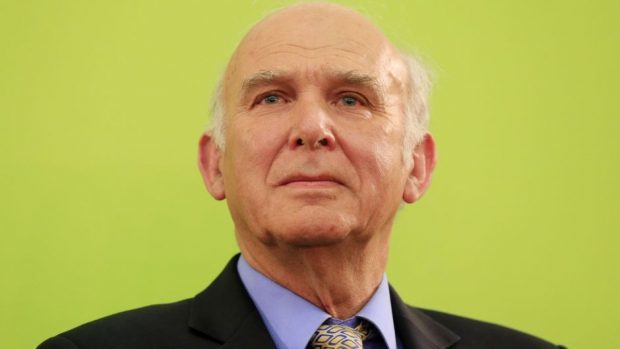New Liberal Democrat leader Sir Vince Cable has described feeling a “sense of duty” to make the case against a hard Brexit, claiming the UK is “crying out for leadership of a moderate kind”.
The former Glasgow councillor said his party could fill the “big space in between” the “polarised” left and right.
He also predicted MPs could defect to the Lib Dems and vowed to strongly defend the devolution settlements as the Brexit negotiations unfold.
His comments came as James Chapman, former chief of staff to Brexit Secretary David Davis, claimed two UK cabinet ministers have contacted him expressing sympathy for his calls for centrist MPs to form a new party.
In an interview with the Press and Journal, Sir Vince, who taught economics at Glasgow University where he did his PhD, said: “I do feel that my party and me personally, we do have a sense of duty to get out there and make the case against the hard Brexit.
“I think the country is crying out for leadership of a moderate kind because we do have this polarisation between extremes, this nationalism on the right and hard-line socialism on the left. There is a big space in between which I want to fill.
“We are highly relevant partly because of the parliamentary arithmetic, but mainly because we are willing to reach out and work with other people. We are not just going to plough a lone furrow, particularly because we have serious weight in the House of Lords.
“There are already about 50 Labour MPs who have broken ranks…then you have the nationalists. We know there are a significant number of Tories who are holding fire but will rebel. So those are the building blocks for a tough approach to legislation.”
Asked about the prospect of MPs of other colours joining the Lib Dems, the 74-year-old, who replaced Tim Farron, replied: “This might well happen. But in the first instance we want to develop collaboration.”
In response to Mr Chapman’s claims, he said his party would “provide a home for all those unhappy with Brexit and the paths the other parties are taking”.
Sir Vince, who served as business secretary under the coalition, said people had voted for Brexit for different reasons, “with different degrees of intensity” and didn’t all want to withdraw from the single market and customs union or “crash out” of the EU.
He added: “Of course there are a lot of Brexit people who are much more fundamentalist so there’s a wide spectrum and part of the problem with this whole debate is that it’s very binary. That’s actually not the way the world is.”
He also urged the government to seek “consensus with each of the devolved administrations”.
